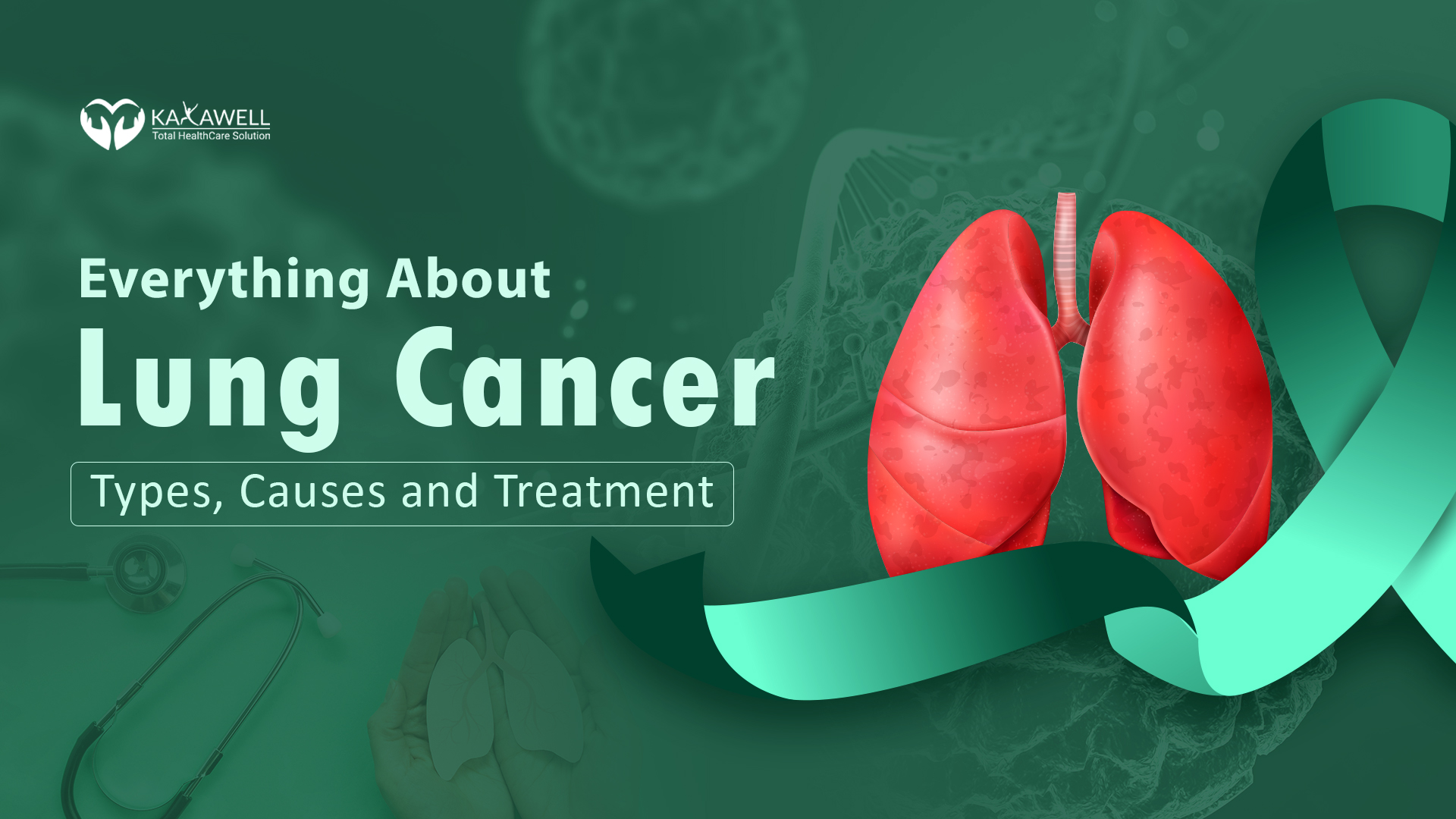Lung Cancer Awareness Day 1 August
Lung Cancer Awareness Day falls on the first of August. This day is a reminder and an effort to create awareness of lung cancer, its chances, and how one can avoid it. It is an opportunity to raise the public’s awareness of patients and promote the early detection of this cancer type. Education about diseases and their symptoms can aid in the identification of illnesses at an early age and thus save the lives of many individuals through preventable illnesses. It is recommended that by being informed on lung cancer you will help shield yourself and those close to you. Be aware of it and pass the information to other people to impact the society.
Different types of Lung Cancer
There are two main types of lung cancer:
Non-Small Cell Lung Cancer (NSCLC): This is the most common type. It includes adenocarcinoma, squamous cell carcinoma, and large cell carcinoma.
Small Cell Lung Cancer (SCLC): This type is less common. It spreads quickly and is usually caused by smoking.
Causes of Lung Cancer
Here is the list of lung cancer causes that can increase the risk of cancer:
Smoking is the leading cause of Cancer. Tobacco smoke contains harmful chemicals that directly impact the cells in your lungs.
Chain Smoking is also dangerous for the lungs. So, breathing in smoke from other smokers can also harm your lungs.
Pollution also plays a vast role in lung damage. Air pollution from factories and vehicles can damage the lungs and increase the risk of cancer.
Radon Gas is a natural gas that can enter into homes from the ground. It is invisible and odorless but can be harmful over time.
Asbestos and Other Chemicals are risks for people who work with certain materials. Exposure to these chemicals can increase the likelihood of lung cancer.
Some people also get cancer due to Family History. If someone in your family has lung cancer, then you might be at higher risk as well.
What are the symptoms of lung cancer?
There can be some differences in the signs of lung cancer. They might not present themselves until the disease has reached an early stage. Common symptoms include:
Continuous Cough: Persistent coughing leads to lung cancer.
Coughing Up Blood: The smallest amount of blood can be a problem for a vampire.
Chest Pain: Such chest pain is deep and predictably increases when taking deep breaths, coughing, or starting laughing.
Shortness of Breath: Breathing becomes hard.
Hoarseness: Variations in the vocal aspect of your personality.
Weight Loss: The following symptoms the patient has experienced are worth mentioning: loss of appetite and unexplained weight loss.
Fatigue: Constant tiredness.
Infections: In this case, the person is more open to infections such as bronchitis or pneumonia, which occur frequently.
Diagnosing Lung Cancer
If you catch a cold or if you are in the high-risk group, go to see a doctor as it can be early stages of lung cancer. The doctor may recommend tests like:
Imaging Tests: X-rays, CT scans, and other MRIs are used to observe the lungs.
Sputum Cytology: A microscope view of the mucus obtained from the lungs.
Biopsy: A biopsy in which the doctor takes a very small sample of tissue from the lung to see if there are cancer cells present.
Lung Cancer Stages
Lung cancer is classified into stages based on how far it has spread:
Stage 0: In this situation, cancer only affects the internal lining of the lung.
Stage I: In this situation, Cancer is small, affecting the small part of the lung.
Stage II: In stage 2, Cancer has spread to nearby lymph nodes or chest walls and will damage them.
Stage III: In stage 3, Cancer has spread to more lymph nodes and other parts of the chest.
Stage IV: In stage 4, called the last stage, Cancer has spread all over the organs.
Treatment of Lung Cancer
Management of lung carcinoma varies with the type of cancer as well as its stage. It also depends on the patient’s general health record, as this determines the body’s immune system's ability to fight infections. Here are common lung cancer treatments:
Surgery involves the surgical dissection of the tumor and some of the bordering tissues. It also aids in minimizing the occurrence of cancer to the best possible rate.
Radiation Therapy: It uses high-energy rays to destroy cancer cells. It can also suppress or eliminate tumors.
Chemotherapy: This includes special drugs to eliminate cancer cells or prevent their growth. These drugs are ingested through the mouth or injected into the body.
Targeted Therapy involves drugs that selectively target specific characteristics of cancerous cells. It may be useful in preventing the formation of cancer.
Immunotherapy: This helps the body build the immune mechanism to fight cancer-related diseases in the body. Today, it is known that it assists the immune system in identifying and destroying cancer cells.
Prevention of Lung Cancer
Lung cancer needs to be prevented. Here are some ways to lower your risk: Here are some ways to lower your risk:
Don’t Smoke: The only way that one can avoid lung cancer is by never becoming a smoker in the first instance. If you do smoke, try and find a way to kick this habit as soon as possible. The benefits of quitting smoking are numerous and can significantly improve your health.
Avoid Secondhand Smoke: Avoid areas in which individuals are smoking cigarettes. Inhalation of secondhand smoke has been determined to be unhealthy.
Test for Radon: The use of a home radon kit should also be encouraged. Radon can get into homes from the ground and poses a threat to people’s lives due to lung cancer.
Avoid Carcinogens at Work: If you are handling dangerous substances, adhere to safety precautions. This will decrease the likelihood of encountering possible causes of cancer.
Eat a Healthy Diet: One should take as many fruits and veggies as possible to incorporate 5 healthy eating habits. Diet is another factor that is central to the health of an individual.
Exercise Regularly: It’s very important to work out daily as it will help you stay active. There are indications that it may reduce your probability of many diseases, including cancer.
Conclusion
Lung cancer is a serious disease. However, in the modern healthcare industry, Lung cancer can be cured. Modern science has multiple tools and strategies through which it can detect lung cancer and give proper treatment to it. So, it’s better to avoid multiple factors listed above that can lead to lung cancer. Additionally, you should also understand what factors you need to consider if you are suffering from lung cancer and how you can prevent it at an early stage. Cancer can be a severe disease, but if you take the necessary precautions, then you can easily avoid chronic diseases like cancer. Therefore, explore everything about lung cancer and make yourself a healthy person rather than pushing yourself in the direction of illness.
FAQs
Q1 What can cause lung cancer?
The main causes of lung cancer are smoking, exposure to passive smoke, and air pollution. Moreover, radon gas and certain chemicals like asbestos also lead to lung cancer. A family history of lung cancer can also increase the risk.
Q2 What are the 4 symptoms of lung cancer that you should be aware of?
The common symptoms of lung cancer are a persistent cough, chest pain, shortness of breath, and frequent lung infections.
Q3 How to know if you have lung cancer?
Lung cancer is diagnosed through imaging tests like X-rays and CT scans. A doctor might also use sputum cytology to check mucus from the lungs and perform a biopsy to remove and examine a small piece of lung tissue.
Q4 What treatments are available for lung cancer?
The treatments available for lung cancer include surgery to remove the tumor, radiation therapy to kill cancer cells, chemotherapy with drugs to stop cell growth, targeted therapy focusing on specific cancer cell features, and immunotherapy to boost the immune system. Palliative care helps manage symptoms and improve quality of life.
Q5 Can lung cancer be cured?
Lung cancer can be prevented by not smoking, avoiding secondhand smoke, testing for radon in the home, following safety guidelines at work to avoid harmful chemicals, eating a healthy diet, and exercising regularly.



 Contact Us
Contact Us






 Hospitals
Hospitals
 Doctors
Doctors
 Diagnostic
Diagnostic
 Pharmacy
Pharmacy
 Health Tips
Health Tips
 Blog
Blog

























Comments